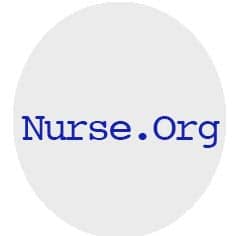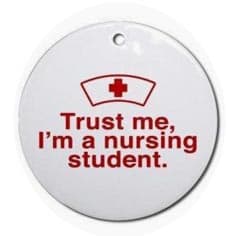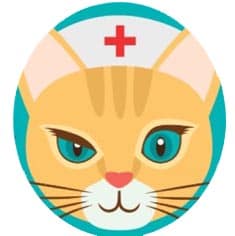We have asked 31 Nurses and Experts to answer the 3 following important diabetes related questions.
- Do you think diabetes is on the rise or decline?
- What mistakes do you see most newly diagnosed patients with Type 2 diabetes make? What tips would you offer to them?
- Lastly, most people talk about the role a Certified Diabetes Educator (CDE), Registered Dietician (RD), Endocrinologist play when it comes to managing one’s diabetes. In what ways do you believe that specialised nurses play a role in the management and prevention of diabetes in patient cases?
And here are the answers we have got.
1. Keith Carlson RN, BSN, NC-BC

A1: While I don't currently work in the clinical sphere, the news from the public health sector make it clear: diabetes is on the rise in the United States in 2017, as well as in other countries around the world. A recent article by Kaiser Health News shows that health claims for Type 2 diabetes in children more than doubled between 2011 and 2015. The inherent risks of a life with diabetes is certainly a factor to take into account when it comes to the financial burdens shouldered by the healthcare system.
A2: Newly diagnosed diabetics are likely to feel understandably fearful; some might decide that they simply can't eat anymore, and will erroneously begin dieting without the guidance of a skilled healthcare professional. My strongest advice is to engage the services of a knowledgeable dietitian, nutritionist, or diabetes educator, and begin to make daily choices and lifestyle modifications that will improve your health and keep your diabetes under control.
A3: Nurses are on the front line of healthcare delivery; if we can begin the education process with our diabetic patients, we can then steer them towards our colleagues who can take their education to the next level. Nurses can work in powerful collaboration with CDEs, RDs, and other healthcare professionals, creating a comprehensive team approach to diabetes management.
2. Margaret Erickson Ph.D, RN, CNS, APHN-BC

A1: (No comment for this)
A2: I think that the mistakes made are made on the part of the nurse/ healthcare worker working with these clients. Unless we understand their worldview and plan accordingly we are unable to facilitate them in making healthy choices that are attainable and health promoting. I would suggest that nurses ask some essential questions regarding their unmet needs, expectations, values, etc. To be successful we have to work with the whole person to set up a mutually agreed upon holistic plan of care which works for them within the context of their life. Together the plan will help prevent many of the mistakes that frequently occur. I have a great case example of this of a Native American I worked with.
A3: We need to change how we approach healthcare. We are facilitators, and our role is offering "tools" to our clients we are not directors, enforcers, etc. Our job is to help people maximize their health status, well-being, and quality of life. Nurses are in the forefront of healthcare. Most of the time, the majority of the client/patient time is spent with nurses. As partners in relationship-based care it is necessary that we support the client in driving their own plan of health. Clients/patients at some level know what has made them sick (this is called Self-Care Knowledge, Erickson, et. al 1983,p.254 Erickson, 2006).Our job is to help them access their internal and external resources (known as Self-Care Resources; Erickson, et. al 1983,p.254 Erickson, 2006) and facilitate them in using those resources in a way that promotes holistic health, wellness, and well-being
(Self-Care Actions; Erickson, et. al 1983,p.254 Erickson, 2006).
The paradigm shift from healthcare providers to clients/patients being responsible for and in control of their health and well-being, empowers the client to be engaged in the process and "in charge" of their lives. The role of the nurse and other interdisciplinary professionals such as the RD is then to offer tools and supportive and facilitative care within their scope of practice, to help people acquire an optimum level of health. This will have a huge impact on "managing and prevention of diabetes in patient cases 🙂
Erickson, H., Tomlin, E., Swain, M.A. (1983) Modeling and Role-Modeling. A Theory and Paradigm for Nursing. Prentice Hall. Englewood Cliffs, NJ
Erickson, H. (2006). Modeling and Role-Modeling: A View From the Client's World. Unicorns Unlimited, Cedar Park: Texas
3. Barb Dehn NP

A1: We are seeing more and more people with diabetes and are getting better about diagnosing pre-diabetes, which is so important because by intervening early and helping people increase their exercise, find healthier and more satisfying ways of eating and enjoying their favorite foods we can help prevent diabetes and all of the severe consequences that go along with the condition. When I talk to patients about how diabetes can cause blindness, they really pay attention.
A2: I think most get overwhelmed feeling that they have to completely and totally change overnight. This seems like way too much for people, which is why we emphasize making healthier choices, becoming more aware of why and when they eat. Many people are surprised to learn that they eat without thinking, eat when they’re bored and eat to numb their feelings. All of these things are completely normal and natural and here’s the secret, everyone does this from time to time.
What I do is ask my patients to write down what they eat and what feelings they might be having at the time. By starting to increase an awareness of what drives us to eat when we’re not hungry, we can start to change a few patterns. For example, when I’m frustrated, I reach for chocolate. By recognizing that, I can stop and pause, and make a healthier choice for how to deal with my frustration, like have a glass of water, get up and walk around or take a few deep breaths.
Another tip that works for most of my patients is to start anticipating and thinking ahead about eating out, situations where there will be a lot of food or trigger foods. I advise people to “pre-decide” what they will eat at a restaurant or pre-decide to only have 1 drink at a party. People might “pre-decide” to only have fruit after dinner or “pre-decide” to skip the tortilla chips and have a salad instead of a burrito, that way, they don’t have to decide in the moment when it’s harder to make healthier choices.
A3: Nurses are an important part of the health care team. Let’s face it, when it comes to helping people with diabetes, we need all hands on deck! People need support from every source and they need to hear the same education over and over and over again and again to form new long-lasting habits.
4. Megen Duffy RN, BA, BSN, CEN

A1: Definitely on the rise. I work with an older population exclusively, and it is rare that I admit anyone who isn't diabetic. Many of them take it for granted, too; when they list all their health problems, they don't even mention the diabetes, as if it's an afterthought or a mere nuisance.
A2: They overly rely on medications to control the disease instead of laser-focusing on changing their diets. They think, "I can eat this high-carb food because I have my insulin or my pills now." In large part this is complicated because information is murky regarding what exactly they should be (or should not be) eating. It seems easier to just take the pill or the shot and hope for the best.
A3: I think patients see their endocrinologists as traffic cops who issue citations based on their A1c numbers, whereas nurses are less so. In cases where there is continuity of care, patients and nurses have a much greater chance to form a trusting and open relationship compared with patients and physicians sheerly by virtue of available time spent.
Nurses are the ones most likely to have the time to spend exploring management possibilities and realistic lifestyle changes with patients. Whereas a physician may consider blood sugar results and alter medications accordingly, a nurse will more often delve in to why the numbers are suboptimal and help the patient to improve blood sugar control.
5. Kathy Quan RN, BSN, PHN

A1: I think diabetes is on the rise in particular with the epidemic of obesity in the US. I also believe more cases are being identified today because there is a greater awareness in the media and there has been affordable access to health care with the ACA allowing for 20+ million Americans to have health care than ever before. With the ACA in jeopardy under the new administration along with the old guard of the previously unsuccessful Senate attempts to to repeal the act, I worry about the future. Diabetes, especially Type 2 diabetes is a chronic disease with multiple complications that can be managed and often prevented with appropriate care. Patient education is vital and access to health care and treatment is essential to managing chronic diseases.
A2: In home health care and hospice we see a lot of diabetes. In home health it is quite common to be called upon to assist in teaching newly diagnosed patients. Years ago, newly diagnosed diabetics were hospitalized to establish a stable medication regime and diet in a controlled environment. Today, these patients are seen in their homes by nurses and sometimes dieticians who are responsible for the patient education.
Like any other diagnosis, patients are often in shock upon first hearing it and denial can set in. A large number of patients may be health care illiterate meaning they probably don't know essential information about their care and how to obtain it such as how the system works, who to call, understand medication labels, when to schedule appointments, and what information they need to bring with them. These people can easily become labeled as non-compliant when indeed that's not their intention. They don't even know what questions to ask to get the help they need.
Reading literature can help, but it's not for everyone!! Most people learn either by reading or by doing. The doers don't learn by reading, but the readers can also learn by doing. I would highly recommend that patients stick up for themselves and say so when they don't understand something. I encourage them to determine how they best learn a new procedure and ask for demonstrations if they learn by doing.
One big mistake is misinformation and misunderstanding of the stable blood sugar. It's very easy to think that by taking more medications, a person can eat wherever they want and control the blood sugars with insulin and oral meds. Rapid spikes and drops are what tend to cause more side effects and complications. The diabetic regimen is a package deal, Diet, medications and exercise are all components. They work together and a stable steady blood sugar level is the goal.
For further information visit the following link: http://nursinglink.monster.com/benefits/articles/20888-understanding-healthcare-literacy-in-patient-education
A3: Patient education is a huge part of the process of controlling blood sugars and managing diabetes effectively. Nurses are responsible for a good 90% of patient education and need to be up on the latest news and treatments. Having access to trusted media is essential to providing the best education possible. There are lots of apps and teaching materials available online to help even the most challenged of learners understand the basics and then more advanced techniques for managing diabetes and preventing complications. This is also true for all other conditions and diseases their client base experience.
Specialists such as the CDE, RD, and endocrinologist are always recommended as part of the patient's health care team because they do have the latest education opportunities and will be most dedicated to ensuring they are up to date. But ALL members of the health care profession are charged with providing the very best care possible and that means keeping up with changes and trends. It also mean being responsible to say they need to research something to be sure they have the most recent knowledge when they know they don't. There is never harm in admitting they need to learn more. The harm is in pretending they do know. None of us ever learns everything we needed to know in school. Nursing (like all of health care) is a lifelong learning experience, and we must be willing to put in the effort to bring the best quality care to our patients.
Another resource: https://www.americannursetoday.com/blog/noncompliance-healthcare-illiteracy/
6. Jane K. Dickinson RN, Ph.D, CDE

A1: Diabetes rates have been steadily rising for decades and do not appear to be slowing down yet.
A2: I do not think people with newly diagnosed diabetes make mistakes. I think they need access to accurate information, support, education, and they need to know that it's not their fault they have diabetes. These are some of the most important tools and messages for successful self-management down the road.
A3: One of the most important roles of a nurse is teaching, and education is the cornerstone of diabetes management. Nurses play a valuable role in teaching people with diabetes how to manage the daily tasks of diabetes self-care as well as providing support and resources. There is no guarantee of preventing diabetes, and using that language can actually lead to self-shame if/when someone ends up developing diabetes or complications. Nurses, however, can help people learn how to lower their risks for developing both diabetes and complications related to diabetes.
7. Veronica Brady NP, PhD, FNP-BC, BC-ADM, CDE

A1: It is my belief that diabetes remains on the rise. The estimation by the CDC that by 2050 1 of every 3 US adults would be affected seems to be becoming a reality. I currently practice in Reno, NV where I have seen an increasing number of patients with T1DM. These are not pediatric patients—as I work with an adult population.
A2: It is my belief that most patients who are newly diagnosed with T2DM do not take the diagnosis seriously. This is either due to a lack of information regarding the disease at the time of diagnosis, or a belief that if/when the disease progresses they can always take more medication.
I would advise any person newly diagnosed with T2DM to first of all attend a DSME course and get all the tools they can to understand and thus manage the disease. I would suggest that they meet with a diabetes educator to further enhance their knowledge regarding self- management, as well as a nutritionist to obtain guidance regarding dietary intake. Last but not least I recommend that they modify their diet, exercise and pay close attention to their A1c.
A3: I think nurses have a key role. In most cases they are the patients first encounter with the health care system. In my opinion it is the role of the nurse to make that initial assessment and if the patient is found to be at risk the nurse can provide guidance regarding lifestyle modification or even a recommendation for DPP. If the patient has diabetes it is the nurse who can guide the care of that patient. In an inpatient setting it is the nurse who can advocate for appropriate diet orders, BG monitoring and medications. In the outpatient setting the nurse can assess the medications that the patient is currently taking and provide education to the patient as needed. The nurse can also evaluate the level of patient compliance and assist with interventions if indicated. It is the nurse who often proves to be the voice of the patient when interacting with the provider.
8. Nurse.org

A1: At Nurse.org, we understand that the evidence clearly shows that diabetes is on the rise, overall. According to reports issued by the CDC in 2016, diabetes in the United States is still characterized as an epidemic, although a slight decrease was seen for several years. Diabetes.org states that 1.4 million new cases of diabetes are diagnosed each year; meanwhile, the number of undiagnosed cases is difficult to determine but is likely significant.
For more informative articles see the following:
A2: We feel that newly diagnosed diabetics need to seek evidence-based care that utilizes the latest innovations in treatment, management, and patient education. Many new diabetics are likely to seek information on the Internet, some of which may be from unreliable sources; we urge new diabetics to engage immediately in relationships with the most highly qualified professionals skilled in cutting-edge, evidence-based diabetes management.
A3: Nurses naturally build bridges between various disciplines; it is this type of holistic multidisciplinary approach that is proven to be effective in the treatment of disease. According to the Gallup poll, nurses are seen by the American public as the most highly trusted and ethical professionals in the country; nurses can leverage this trust, instilling in their patients crucial knowledge about their diagnosis and how to manage it across the lifespan. Nurse.org supports nurses and all healthcare professionals, and we encourage nurses to promote multidisciplinary collaboration and a patient-centered approach to diabetes management.
9. Melissa Fischer LVN (Director of Operations, NurseRegistry)

A1: Unfortunately, diabetes is on the rise. We have seen an increase in the number of people inquiring about diabetes management services. Often, these clients need a nurse to administer their insulin injections, though our nurses have also provided medical support to parents of young children with diabetes. We also receive requests from patients struggling with complications of diabetes including wounds, stroke, and kidney disease. Although the number of individuals living with diabetes has not been increasing quite so rapidly in the last decade, we see that it continues to affect more people each year.
A2: Newly diagnosed diabetic patients may not be aware of the health complications associated with diabetes and may not realize the importance of checking their blood sugars often. I recommend that all diabetic patients, newly diagnosed and otherwise, be proactive about learning more about diabetes and discussing questions with their physician. Like most new diagnoses, patient education is critical. It is important for the family members and caregivers of those with diabetes to understand not only disease management, but also signs and symptoms of possible complications that may arise. Both patients and their families need to take education seriously and remember that this is a lifelong lifestyle change.
A3: All nurses are an essential part of your full health care team. Nurses play an important role in patient education for both the prevention and management of diabetes and can provide more personalized attention than your primary physician may be able to. In most situations nurses are the on the front line with patient assessment; they are the physician’s eyes and ears. Nurses report critical information during all stages of the disease process – from prediabetes to more serious, long-term complications.
Nurses are invaluable in supporting patients, especially those who have been newly diagnosed, with their diabetic management routine. They can administer insulin injections, educate the patient on healthy living tips, and advise them on their dietary habits.
For parents of young children who have received a diagnosis of diabetes, nurses have the medical knowledge, experience, and calm, compassionate nature to afford their little one the most skilled care. Some nurses are specially trained in diabetes management, and they can teach patients about diabetes self-care. Nurses are important players in a well-rounded care team.
10. Brittney Wilson, BSN, RN

A1: Diabetes is on the rise, but I don't believe it will climb much higher. It has the potential to be addressed in new ways with the rise of ketogenic lifestyles. Historically diabetic diets have focused on controlling carbs while ketogenic eating almost eliminates them replacing the body's fuel source of glucose with fat. Once more physicians and nurses are educated on the benefits of ketogenic eating and how it can reverse and prevent type 2 diabetes in many patients, a dramatic decline will occur. This is already starting. So it is likely we are approaching the peak of diabetes and it will begin to fall along with obesity levels.
A2: The biggest mistake newly diagnoses diabetics make is eating outside of their prescribed diets. When you live your life eating a certain way it's hard to stop. Just like smoking, food is an addiction that is difficult to break for most. Changing your way of eating requires strength and support. One of the best things you can do to be successful is to get your family on board. If sugar-loaded food is off the menu for you, having your family pitch in (at least in the beginning) and adopt a healthier diet will make things easier. Meal planning is also a great strategy to ensure you stay on track. It's hard to eat something you shouldn't if you already know what you're going to eat for the day.
A3: The role of nursing in diabetes revolves around education and support. While CDE, RD, endocrinologists, and primary care MDs play a large role, in the acute care setting the patient spends more time with the nurse than anyone else. Often nurses field the majority of the questions related to diabetes and must be equipped to answer questions about diet, medications, and life after diagnosis. In the ambulatory care or home care setting nurses must also be well informed to provide patients with the information relevant to their specific condition.
11. Gary Scheiner, MS, CDE

A1: Clearly rising. Type-2 diabetes is caused by a combination of genetics (heredity) and poor lifestyle habits. As people with type-2 (or at high risk) pass along the genetic tendency to their children, and as the obesity epidemic continues, the incidence of type-2 grows rapidly. We are also as healthcare providers, we are also better (and more aggressive) at diagnosing type-2 diabetes than ever before.
A2: Many mistakenly believe that type-2 diabetes is not terribly serious, or that all you have to do is take a pill to manage it. Type-2 diabetes is EXTREMELY serious. It reflects a host of underlying metabolic problems that will grow worse over time. Effective treatment requires a partnership between the patient (through healthier lifestyle choices) and their healthcare team (prescribing appropriate medical treatments). One or the other is not enough. You need both.
A3: Nurses, dietitians, and Certified Diabetes Educators (what I call "ancillary" providers) play an essential role... perhaps a greater role than physicians. Because lifestyle plays such an integral role in diabetes care/management, ancillary providers are in a unique position to educate, motivate and orchestrate patients towards optimal diabetes care. I believe they have the time, expertise and temperament necessary to properly treat most cases of type-2 diabetes.
12. Christine Olinghouse FNP-BC, BC-ADM, CDE

A1: According to CDC, 2014 data diabetes is still on the rise. Currently 1/10 persons in the US. In my practice, I see mostly adults, and in persons over the age of 60, the incidents are ¼, or 25% diagnosed with diabetes. As a family nurse practitioner, I am also worried about the rising incidence of type 2 in teenagers. Can you imagine the impact of a wave of 14-18 years diagnosed with pre-diabetes or type 2 diabetes with complications starting 15 years from diagnosis? that means complications starting at age 30 years old!
A2: Taking the diagnoses seriously and failing to see a professional sooner than later. There is "no pain" per se, compared to having a heart attack, so in the mind of many of the people I see, they tell me, " I thought I would lose weight first, and then come in, because that is all you are going to tell me anyway".
Definitely weight loss and exercise are the cornerstone of diabetes management, but every day someone persists with high blood sugars, they do irreversible damage to blood vessels. Diabetes is the still the leading cause of heart attacks, amputations, and dialysis, (which by the way is life support.)
When I worked in the hospital, I would hear over and over again, "Hasn't medical science come father than this? It feels like an old Western of 1800, why is amputating my leg the only solution to infection to the bone from uncontrolled diabetes?"
Learning to walk with a prosthetic leg is not the way most people envision spending their " leisure" retirement years.
A3: From my perspective, building a relationship with your provider is key. We don't have a cure for diabetes, so patients should be focused on avoiding complications. not avoiding therapy. The management of the disease is dynamic, (ever changing), different therapies may be appropriate at various stages, many internal medicine doctors as well as family practice doctors are very versed in the ever evolving therapies available, but managing chronic disease requires a partnership, relationship with the patient. Patient's know themselves best, asking for specialized help (nutritionist, certified diabetes educator, endocrinologist) at various times comes naturally when you have a relationship with your provider.
Please see attached fact sheet and web resource: http://www.diabetes.org/diabetes-basics/statistics/cdc-infographic.html
13. Lorry Schoenly Ph.D, RN, CCHP-RN

A1: In 2004, 4% of prison inmates reported having diabetes. In 2011-12 that number jumped to 9% that compares with 6.5% in the general population. Diabetes is a chronic condition of great concern in the incarcerated population.
Link for reported having diabetes: https://www.bjs.gov/content/pub/pdf/mpp.pdf and the other one is https://www.bjs.gov/content/pub/pdf/mpsfpji1112.pdf
A2: Incarcerated diabetics have many challenges in learning about their condition and how to manage it in a secure environment. I think nutrition and weight management are particularly difficult issues with the food offering in the dining hall and availability of healthy options in the commissary (prison store available to inmates). While there are usually health professionals working in correctional facilities, doctors and nurses are often uninformed on nutritional counseling and have little time to spend on this activity with newly diagnosed diabetics.
Link for weight management: http://citeseerx.ist.psu.edu/viewdoc/download?doi=10.1.1.978.1359&rep=rep1&type=pdf
A3: Correctional nurses have an opportunity to greatly affect diabetic management if they have proper training in the condition and in motivational interventions to encourage lifestyle changes. Nurses working in the criminal justice system are used to assuming many of the specialized roles found in more traditional settings such as respiratory therapist or diabetic educator. We do the best we can with the resources available.
14. Katherine Clark

A1: Diabetes, in my opinion, is on the rise because nowadays everyone in the hospital setting is getting glucose readings. People aren’t watching what they eat and are gaining weight and they believe they are fine but they can’t see what’s going on inside their bodies.
A2: I think newly diagnosed patients either are taking it very seriously and following the instructions healthcare professionals provide OR they are not taking their medications correctly, aren’t following a diet and/or not exercising. I would tell patients that it is an overwhelming process but by progressing slowly with minor changes such as swapping unhealthy foods with healthier foods, or taking the stairs instead of an elevator. These simple changes will lead into bigger ones as time progresses.
A3: Nurses play a major role in diabetes management and prevention, we teach the patient how to use their insulin, what type of insulin they will be receiving, how to prevent a hypoglycemic attack or hyperglycemia. We teach about all the side effects as well and how different types of medicine management works (i.e. injection v pump).
15. Snarky Nurses

A1: No comment.
A2: No comment.
A3: Nurses play an integral role in the management and prevention of diabetes at the bedside, particularly management. It is there that we can discuss how and when to check blood sugars, what appropriate ranges are, in what time intervals to take their insulin in relation to meal intake, how to manage hypoglycemia, what the signs and symptoms of hyper/hypoglycemia are, and also why the meals they are being served are good choices for their chronic illness.
Additionally, we can discuss the negative outcomes which are associated with diabetes. I would say it can be incredibly difficult to complete all of these tests because of our staffing ratios, so now we are often reliant on the CDE, RD and endocrinologist to relay a lot of information, however, that shouldn't negate our continual offering of education to our patients. I believe as more research is done on the diabetes epidemic, we will find better ways to help our patients succeed, for now, we must rely on the systems we have in place and the education we can offer.
16. Elizabeth Klodas, MD, FACC

A1: Absolutely on the rise. It is now rare for me to see someone not on the diabetes spectrum --- obese/metabolic syndrome/pre-diabetes/diabetes
A2: The biggest mistake they make would be lack of a full-out effort to reverse their disease. The adjacent mistakes include resignation to their diagnosis and continuation of a lifestyle that led to their disease in the first place. But this is not necessarily entirely on the shoulders of patients – as a medical community we fail to address the issue of obesity with the veracity with which it needs to be addressed. Going from obese to diabetic takes decades. That’s a lot of years to basically turn a blind eye to patients’ health struggles, allowing the ingrained counterproductive behaviors to become more ingrained.
The biggest tip I would offer would be the adoption of a whole food plant based diet. If a whole scale dietary change cannot be accomplished from the get go, start by changing the fluids to water, unsweetened tea and coffee. I am always amazed at how many calories and simple carbs people consume via beverages.
A3: Nurses can and should be the vital link to follow-up on lifestyle change and to provide management support. Receiving the diagnosis of diabetes can be overwhelming and any lifestyle advice provided at that time may not be received. Follow-up and repeated counselling are necessary to provide optimal care. Patients may also be reluctant/intimidated to ask all their questions – nurses can fill in here as well.
BTW – something I have done to help patients who struggle with the dietary component of their treatment plan is Step One Foods – a simple, minimally disruptive approach that meets people where they are. Formulated specifically for cardiovascular health support, we continue to get comments from folks who have seen their blood sugar control improve and weight go down. We had a nice article written about us in the Chicago Tribune recently (http://www.chicagotribune.com/lifestyles/health/sc-food-as-medicine-health-1221-20161219-story.html).
17. Troy Diffenderfer

A1: Unfortunately, I do believe that diabetes is on the rise. Despite steps taken by the FDA to curb our sugar consumption, many of the nurses that we work with are still seeing a rise in diabetes. Alarmingly, it appears that the average age of diabetes patients is growing younger as well. Many of our nurses blame the advertising industry for marketing sugary products towards our younger generation. Food and drinks like Gatorade and certain breakfast cereals may appear healthy but are actually full of sugar.
A2: I think the biggest mistake that many type 2 diabetes patients make is assuming that only food and drink impact your blood sugar. In fact, a variety of factors can play a role in an increase of blood sugar levels. Stress, for example, can wreak havoc on your blood sugar if it’s not monitored. Those who work in a more stressful environment are more likely to have sugar spikes. Another little-known factor on blood sugar is exercise. Although many of us assume that exercise is always a good thing, too much stress on the body can actually increase your blood sugar levels. Make sure to consult a doctor to figure out other ways you can decrease your blood sugar.
A3: No comment.
18. Jeannette White, RN

A1: Personally, I believe that diabetes is on the rise, mainly due to our food and weight problem in this country. Due to recent efforts for diabetes awareness, we may also see a jump in numbers as people are getting tested and seeing medical assistance.
Although we have made great efforts regarding to the management of diabetes, I believe there is opportunity for improvement especially related to patients who are over weight, or are young adults living with diabetes. Knowledge and food choices are key in managing diabetes.
A2: Under estimating the power of drinking water, not tracking their food or glucose numbers, and not following up with doctor visits or labs. Newly diagnosed patients struggle with tracking this new information, which is necessary in planning out the plan of care. I have also had many experiences, where patients who are Type II and are taking insulin do not prioritize refilling their prescription. We have seen many patients in DKA or high blood sugar crisis, because they believed they could manage without it. It's a lifestyle change, and the more the patient understands the less resistance of care would be.
A3: During a patients stay, nurses have the opportunity to do build a rapport with the patient and educate the patient on food choices and blood glucose management. Personally, I always print out patient education forms which are available to us, and highlight key points for patients to read, even if they have had diabetes for years. Some of the patients or family members display a laid back approach in diabetes management, Breaking that perception is necessary to help patients, and family members be compliant and improve their health.
19. Suzanne Condon, NP

A1: I currently live and work in St. John’s, Newfoundland & Labrador (NL). In NL we have the highest numbers of diabetes in Canada. The estimated prevalence of diabetes was 9.3% in 2010 and will increase to 14.4% in 2020.
I work as a Nurse Practitioner in the Mental Health field and also, privately, as a Nurse Practitioner delivering primary healthcare to people in their homes. I see the rise in diabetes related to our older population, high overweight & obesity rates and high pre-diabetes rates.
A2: I think the biggest mistakes come from patients receiving insufficient information. Diabetes is a disease with many playing parts. Newly diagnosed patients need to be provided with a good basis of education regarding food choices, importance and effect of exercise, medication choice and use, monitoring blood glucose levels (keeping a log book) and knowing the signs and symptoms of hypo and hyperglycemia.
I believe all newly diagnosed patients with type 2 diabetes should spend time with a Diabetes Nurse Educator or Nurse Practitioner in order to obtain an appropriate educational foundation.
A3: I think Nurses and Nurse Practitioners are in an excellent position to help with diabetes management and prevention. Education is key! Nurses in every healthcare area can provide education on how to prevent diabetes.
Public Health Nurses can play a pivotal role working with our youth in the school setting focusing on living and maintaining a healthy lifestyle.
In my current role I focus on the prevention of diabetes with every patient. I look at a patients age, current risk factors and family history and provide screening for pre-diabetes and diabetes. For my patients with pre-diabetes I focus on lifestyle changes (physical activity and maintaining a healthy, balanced diet) to prevent the progression from pre-diabetes to diabetes.
For my patients with diabetes, I spend time providing education and counselling. I hold people accountable for their diabetes control. I find that people do better when they know that a healthcare professional will be “checking in” and following up with them regarding their weight loss goals and blood sugar control.
20. Zach Smith, BSN-RN

A1: I have worked on a variety of departments, including LTC, pediatrics, Med/Surg, etc., so my experiences vary depending. I feel like diabetes is on the rise, or at least more people are getting diagnosed and treated for it. With children, they are screening for it more often, and with adults the trend appears to be more people having their mild symptoms looked into.
A2: I think that newly diagnosed patients have only a limited understanding of the effects of their diet on their diabetes. Too often people want to just rely on oral Metformin or SC Novalog, when their diagnosis can be treated by diet and exercise. So, encouraging natural diabetes management up front during the initial diagnosis is key, but also helping them understand that it is more than just sugary foods, there's a whole arc to the effects of a diet.
A3: Any new diagnosis comes with a lot of information and anxiety. Many patients that I have had who've been newly diagnoses jump to a worst case scenario. Helping patients understand that diabetes does not have to be life changing, just life altering.
Secondly, reinforcing their diabetes education is critical. Just because it has been done and checked off does not mean the education should stop. I take every opportunity to utilize the white board in my patient's rooms to show how blood sugars rise and fall and the influence that food, short acting, and long acting insulin has on that.
21. Eileen Spillane RN, MSN

A1: There seems to be a rise in diabetes as we see a rise in obesity, especially in children. When I started in Nursing over twenty-five years ago, POC glucose monitoring was primarily utilized for patients taking steroids. Today, with a growing sedentary population, diabetes has become a common comorbidity that complicates other medical conditions, even pregnancy.
A2: Receiving a diagnosis of any chronic condition can be overwhelming for a patient. Sometimes a period of denial prevents one from establishing control of the situation. Like anything that is overwhelming, it helps to establish reasonable goals. Rather than a goal of a normal A1C, start smaller by walking for 15-30 minutes after a meal or maintain a food diary. It’s helpful to engage support from a friend or family member and the value of an experienced dietitian can not be overstated.
A3: Of course a primary care provider can manage patients with diabetes. However, I would encourage everyone to at least consult with an endocrinologist and seek out working with a CDE or RD. The individual attention a patient receives from a diabetic specialist provides essential tips that can impact the progression of the disease.
22. Robert Vaughan BSN, RN, PHN

A1: While I am not an expert on diabetes or it's presentation in the population, I can report anecdotally that I have seen it become more prevalent in my work as a cardiology nurse. I would say that, conservatively, at least half to three quarters of my patients have diabetes.
A2: In my experience the biggest mistake they make is not seeking support. They try to go about making these drastic lifestyle changes alone and many are unsuccessful at implementing the necessary changes because they feel depressed and isolated.
I would recommend seeking out a support group. Having a group of people you can go to vent, seek council, and receive support is paramount to success in my opinion.
A3: The role of the nurse is to educate, empower, and advocate. Nurses play a key role in encouraging their patients to seek support, provide education that is reinforced by other specialties, and advocate to those other specialists on behalf of their patient. In my experience, the nurse is the first point of contact after a diagnosis of diabetes and a good nurse can make the transition to successful management much smoother.
23. Ann Preston Roselle MSN, ACNP-BC, NP

A1: I do think diabetes mellitus is on the rise in the country. In my office, which is adult and geriatric psychiatry, easily once per month a patient shares that they are newly diagnosed with diabetes, or deemed to be prediabetic by their primary care physician. Patients are presenting larger in size and admitting to eating too many foods that are carbohydrate and sugar heavy.
A2: Type II diabetes, when newly diagnosed are often more cavalier about the need for dietary and lifestyle changes when placed on a single oral antihyperglycemic agent. They lose a few pounds on metformin and feel taking the medication is sufficient. I see, in practice, that individuals often feel the diabetes is less serious when insulin is not involved. I would encourage them to understand their disease is just as serious and to treat the oral agent with the same concern they would give insulin. I would offer them weight loss strategies and nutritional counseling. I also find the newly diagnosed with type II don’t understand the importance of checking their glucose at a minimum of twice per day. Often when I ask them where their glucose runs they offer that they don’t check their blood sugar. Regular glucose checks are critical.
A3: Nurses play an integral role in diabetes management. Nurses can function as the education, dietician and nurse all-in-one collaboratively with endocrine or the primary physician. We are often the first person the patient will speak to when there is an issue. We have the ability to foment change in the patients who desire to improve their health and learn how to properly manage their diabetes.
24. Cheryl Winter MS RD/N, MS APRN, CDE, BC-ADM, FNP-BC, IFMCP

A1: I have no doubt that diabetes is on the rise.
However, saying that, I think the diagnosis of more people has been missed and there are more people with diabetes than we know of because we have not been testing them accurately. Often, the clinician is simply looking at a fasting blood sugar (FBS) greater than 100 mg/dL to 125 mg/dL to diagnose pre-diabetes and a FBS of 126 mg/dl or higher to diagnose type 2 diabetes.
Too many people will be missed by looking at just the FBS and even just the hemoglobin A1c. Instead, we need to be assessing insulin levels (annually), as the rise of insulin will alert the clinician that the person has insulin resistance, when it is out-of-range (and don’t rely on the lab’s reference values because they are usually incorrect; a desirable insulin level is 4-6 ulU/mL).
Another desirable lab to run is leptin (similar to becoming, insulin resistance, people also become leptin resistance before developing diabetes). Since diabetes is a progressive condition, waiting around until the FBS becomes abnormal is almost too late, and damage is already being done. We have to stop thinking of diabetes as a disease, but instead look at it as a disorder. The process of diabetes starts 10-12 years before the current standards of how we currently diagnose it.
We can fix a disorder before it becomes a full-blown problem. Unfortunately, I see a great deal of my patients with elevated insulin and/or leptin levels, but both their hemoglobin A1c and FBS or within normal limits. As clinicians, we need to look at the whole person and assess many other biomarkers beside FBS and hemoglobin A1c. A person’s waist circumference will give clues to keep searching, however, even people without excess visceral protein (belly fat) can have metabolic syndrome (and thus insulin resistance). Because of the culture of our society today (high processed foods, lack of activity, etc.), we are all being programmed to become diabetic. No one is off limits. Of course, someone who has a genetic predisposition has a higher chance of developing diabetes, but genetics is actually a small part of the equation to getting diabetes. It’s the environment and lifestyle factors that changes everyones genes.
If we don’t load the gun with the bad lifestyle and environmental factors, than the trigger is never pulled. People need to know that they are on the verge of getting diabetes if they don’t make some lifestyle changes. They will never do that if we simply tell them that there FBS is just one point higher than normal, so no worries. They will think they are fine. One simple dot on a graph separating normal from abnormal doesn’t define diabetes.
A2: I think most people (even healthcare professionals) don’t understand that diabetes is a disorder caused by inflammation.
Many many things in our environment and our lifestyle contribute to this inflammation and thus to elevated blood sugar. Sugar (and the breakdown of carbohydrates) will definitely lead to inflammation and therefore, the better the diet is limited in these the better.
But there are many other factors leading to inflammation, e.g. what is in our foods. For example, it’s not enough to limit the carbohydrates and sugars, we must also remove all the additives and chemicals that are in our food. These also contribute to inflammation. Eliminating all processed foods, GMO and non-organic foods will have a huge impact on blood sugar numbers. There are many many more things in our environment that contribute to inflammation (e.g. stress, plastics, mercury fillings, cosmetics, household cleaners) that we can definitely attempt to rid ourselves of, but that’s a story for another time.
A3: Nurses are hugely important in helping in the management and prevention of diabetes. It is our duty as nurses to educate our patients and empower them to make lifestyle changes and show them how to protect themselves and their families.
They need to hear our horror stories of the other patients we have taken care of in the ICU, for example, who have suffered absolutely needlessly because of complications from this horrible disorder. They need to realize that a little bit of sugar in the blood, is a big deal, and that a piece of cake or cookies every day does make things worse, but that you as a nurse can help them find delicious alternatives that will make their body stronger to fight this disorder. In many cases, nurses have more access to patients than any other member of the healthcare team, and nurses are very much admired by the community. Patients trust nurses. The best thing nurses can do for their patients, in my opinion, is to learn more about nutrition and practice what they preach. Like doctors, nurses get very little nutrition in their curriculum, and you know the saying: “Food is Medicine and Medicine is Food.”
25. Ezzat Saad MD, Ph.D

A1: Over the past few years of my experience in Oncology Healthcare clinical settings, I have been observing that the number of cancer patients diagnosed with diabetes have been increasing especially among patients living with cancer (undergoing and post treatment). In my opinion this increase cannot be ultimately attributed to an absolute increase in prevalence of diabetes with cancer but may be also correlated with the advances in cancer management that lead to prolonged survival among patients with advanced cancer which is accompanied with higher incidence of therapy-induced side-effects and chronic diseases as diabetes.
A2: The two most common mistakes I came through with patients newly diagnosed with diabetes type 2, are when they suffer from nutritional problems and loss of appetite due to cancer therapy, they reduce their anti-diabetic medications because of a misbelief that their nutritional deprivation will lead to better glycemic control. The second mistake is related to healthy lifestyle and maintaining body weight as many patients have the misunderstanding that weight gain is a sign of good nutrition.
In both cases I explain to patients the importance of adhering to the prescribed medications and clarify different ways to cope with nutritional side-effects of cancer therapy and I refer to a dietitian.
I also explain the importance of maintain a low BMI, adopting a healthy lifestyle and customized exercise programs according to the disease condition.
A3: As the population keeps rising, the demand for the health care services also increase but the resources cannot keep-up the same pace. Physicians and specialized HCP’s are doing their best to keep the patients visits focused on diagnosis and prescribing best treatments.
This is where I believe that nurses can play an integral role complementing the role of the physician to help both prevention/early detection as well as management of diabetes. Nurses can provide high skill clinical support to identify population at risk and prediabetics. Community based programs that provide behavioural coaching, education and treatment support aiming at enhancing self-management and empowerment of patients with chronic diseases specifically diabetes. One our Innovative interventions is the TAVIERX virtual nurse where patients use interactive mobile app that depends upon virtual nurse coaching for patients with chronic diseases to help them better cope with their illness, adhere to medications and deal with the side effects. This virtual communication with the nurse provides more convenient, less costly, efficient support to patients.
26. Christina Salm RN, BSN

A1: I believe diabetes continues to be on the rise not only because of the obesity epidemic in this country but also because more people are now receiving necessary healthcare due to the Affordable Care Act.
A2: People who are newly diagnosed are often overwhelmed with all of the information and lifestyle changes that need to be implemented. I encourage my patients to focus on one thing at a time, master it and then move on. Little changes make a big difference and doing something is better than doing nothing.
A3: Nurses are a vital component of the control and prevention of diabetes. We encounter people with diabetes throughout the continuum of healthcare and have the opportunity to reinforce teaching that may have already taken place, introduce new topics, and clarify other items. Nurses also offer moral support and encouragement as our patients forge a healthy lifestyle.
27. John Green RN, MSN

A1: Diabetes seems to be on the rise in upstate New York. Rural communities are experiencing an overall decline in health due to an overall decline in medical providers, clinical support, wellness clinics, and home nursing care. This reality is easily identified when people arrive in the emergency department with blood sugars in the 300 and 400 range and A1C readings in the low 20’s. Many of these people face extreme hardships with having the supplies needed to monitor their sugar and manage their insulin needs. In addition to this, lack of at home monitoring in the form of visiting nurses causes additional mismanaged diabetic care.
A2: Patients who are newly diagnosed with Type 2 Diabetes, often make the mistake of thinking it is better to have a higher blood sugar than a low one. This misconception and mistake leads to dangerously high numbers that cause organ damage over time.
The patient does not think of this, rather the fear of the symptoms accompanying a low blood sugar. Patients will often reduce their own insulin to avoid a lower blood sugar. Brand new diabetics often make the mistake of eating sugar snacks to increase their blood sugar. It is not uncommon to hear a patient state they ate a piece of candy, donut, or full glass of orange juice to keep their sugar up.
A3: The nurse plays a critical role in education while the patient is in the in-patient hospital setting, out-patient clinic, skilled nursing facility, or home setting. The nurse must help the patient understand how to deal with the disease in real time, while understanding the impact the disease can have over time. The nurse provides the holistic approach to care that others, such as the registered dietician or diabetes educator may miss. This includes managing oral diabetic agents and other medications, how to store insulin, use the needles, places to inject, and ways to monitor blood sugar.
The nurse needs to give the patients tips that will work for their situation and help them be successful in their management. Generic tips such as begin an exercise routine and plan your meals are great, however they need to be tailored to the person. A great tip for a person who struggles to walk could be to teach how to do exercises in bed between commercials. Every diabetic patient must keep a simple log of their blood sugars so they can understand their own body’s response to the medications, changes in lifestyle, and medications.
28. Alice Benjamin

A1: I do believe diabetes in on the rise. According to the American Diabetes Association, there are 1.4 million Americans diagnosed with diabetes every year. That along with the growing obesity problem puts several Americans at risk.
A2: I see newly diagnosed patients make extreme changes such as completely cutting out carbs from their diet and exercising vigorously which can drop blood sugars dangerously low, especially if they've recently started on medication. Slow and steady wins the race. Its a combination of making safe healthy choices, understanding that carbs are still an important part of your diet (so some are still needed) and exercising regularly in moderation are important to understand. Otherwise these patients are plagued with episodes of extremely low blood sugar which can be life threatening.
I also see patients who make the mistake of thinking that an oral anti-diabetic medication or insulin is enough to manage their diabetes. Exercise, eating healthy, and taking a proactive stance on health maintenance are all parts of the care plan - not just medicine.
A3: Nurses are excellent resources that can compliment a CDE, RD or endocrinologist. Nurses have full knowledge of the diabetes disease process, interventions and management and can educate and reinforce information to patients in holistic manner. Nurses can also asses a patient's readiness to learn, their support system and resources to manage their disease process and provide recommendations to ensure that they have a supportive system in place that allows patients to take the best care of themselves. Its not always just about educating the patients, its about talking about stress levels, do they have access and transportation to get to and from the doctor appointments, do they have access to healthy food choices, what are healthy food alternatives considering their culture, can they pay for their medicines, do they know how to use their blood sugar devices. There's a lot that nurses assess for and can appropriately intervene and help patients with, especially when each patient is so different.
29. Sandy Summers RN, MSN, MPH

A1: From my public health perspective, I see obesity continuing to hit Americans hard, especially African Americans and Hispanics. One large reason is that the Farm Bill (Agriculture Act) puts only 1% of its support toward fruits and vegetables, which are the healthiest foods—foods that prevent obesity and diabetes. The rest of Farm Bill spending goes mostly towards producing meat, dairy, cheese and eggs. These foods cause inflammation, atherosclerosis, heart disease, cancer and obesity, which ultimately leads to diabetes type II. The Farm Bill especially hurts poor people, many of whom are African American and Hispanic, because of centuries of racism. They cannot afford these expensive fruits and vegetable that keep us healthy.
A2: I would suggest new diabetics take a look at food in a new way. People don’t have to go hungry to change the way they eat. That is step 1. Most people won’t think about changing eating patterns because they fear being hungry. But you don’t have to be hungry to make different food choices. But we do have to shake up our grocery carts and fill them with brightly colored foods that come straight out of the ground, instead of food in packages or food that is beige. A plant-based diet brings good health, good weight and can often reduce the severity of diabetes type II.
If rigorously followed, in some people a healthy diet can cure diabetes type II completely. The movie Forks Over Knives shows how this is possible, and can help people learn how to reduce obesity and improve health. In addition, try to eat organic foods, which are healthier in part because research shows a link between pesticides and obesity. If an entirely organic diet is too expensive, at least try to avoid the “Dirty Dozen,” 12 most pesticide-laden vegetables. In addition, most people walk around so dehydrated every day. Water makes us feel better. When we are hydrated we eat less and weigh less. When people give up diet soda and start drinking water instead they can reduce both their diabetes and obesity.
A3: Nurses educate patients about how to cope with their diabetes, and as the professionals most likely to see patients suffering from the extremes of their diabetes, we can educate them how to watch for and manage dangerous symptoms. Nurses are also duty bound to advocate for patients and help them navigate their relationships with prescribing providers to help them ask the right questions, explore and request the best treatment options, and achieve a better care plan for self-regulated diabetes care. Without nursing’s observation, guidance and advocacy, patients would often fall through the cracks of the health care system. We are essential to help patients have the knowledge, courage and autonomy to take their diabetes under competent self-control.
30. Dr. Sally Villaseñor DNP, RN, ACNP-BC

A1: I’m not sure if diabetes is actually on the rise, however I do know that obesity is a huge problem in the Unites States.
Obesity is a known risk factor for developing Type 2 Diabetes, so it is possible that diabetes is on the rise. Sadly, I diagnose a number of patients without established primary care providers with diabetes in an urgent care setting every year.
A2: Many newly diagnosed diabetics make these mistakes:
- They do not take the disease seriously; uncontrolled diabetes can contribute to comorbid health problems such as kidney disease, heart disease, peripheral neuropathy, and retinopathy to name a few,
- they are afraid to use insulin, which is a lifesaving drug and should be considered early in the treatment of diabetes, and
- they do not make an effort to establish a primary care provider for their care.
A3: Nurses naturally play a role in diabetes management as patient advocates and educators. Nurses often participate in intensive education sessions for diabetics. For prevention, nurses can provide education regarding healthy lifestyles and weight reduction, referral to a dietitian early if the patient is pre-diabetic, and coaching the patient. Research, systematic reviews, and other contributions to science by nurses are another important way they play a role in diabetes management and prevention.
Nurses can translate research into evidence-based practice for healthcare providers who care for diabetics.
31. Rosie O’Hara RN
A1: Yes, I think type 2 diabetes has been on the rise steadily because lifestyle plays a large role in whether the potential for diabetes is realized.
A good percentage of us have the genes that can cause diabetes, and lifestyle can bring it out. Major risk factors include family history, obesity and lack of exercise. We can’t change our genetic makeup, but we can make sure to exercise regularly and maintain a healthy weight and diet. The big concern is that we are seeing younger and younger people – even children – getting this disease because of the obesity epidemic.
In the past, type 2 diabetes was typically only seen in older adults. If we continue to educate children and adults about the benefits of a healthy lifestyle and make changes, we hope to begin to see incidence plateau or even decline.
Further reading:
A2: Some people get scared of carbohydrates and reduce them so much that they don’t feel good, are hungry all the time and get discouraged because it’s too hard to maintain. We teach a diet that is moderate in carbs because even though they do make blood sugar go up, we get a lot of vitamins and minerals from healthy carbs.
I also encourage our patients to take an active role in learning about diabetes. Medication isn’t enough. Patients need to learn as much as they can about how to control it – knowledge is power. You can be healthy with diabetes, but you need to know how to manage it. We also encourage physicians to refer patients for diabetes education programs.
A3: I think all nurses are aware of the importance and power of education, so they play an integral role by making sure they encourage patients with any chronic condition to take control of their health. Serving as patient advocates and knowing what resources are available – such as diabetes education – are key to improving the health and well-being of our communities.
Disclaimer: The views and opinions expressed in this article are those of the contributors and do not necessarily reflect the official policy or position of TheDiabetesCouncil.com.
TheDiabetesCouncil Article | Reviewed by Dr. Christine Traxler MD on June 02, 2020


